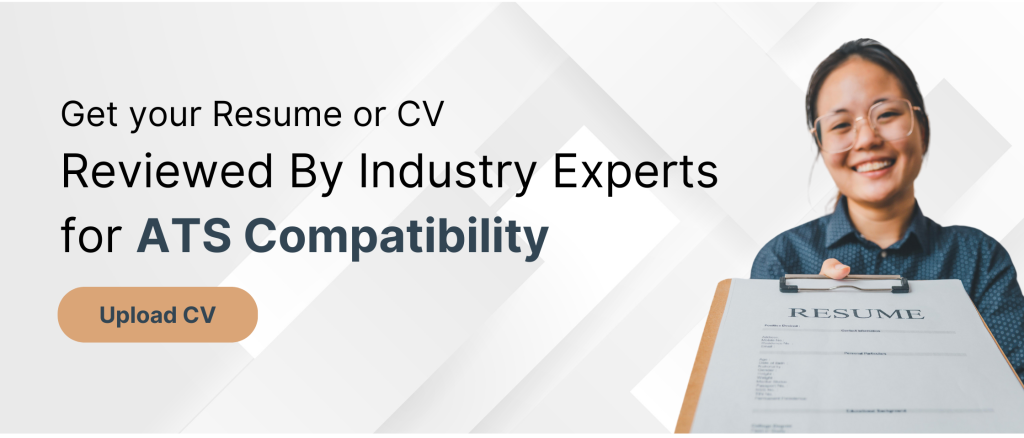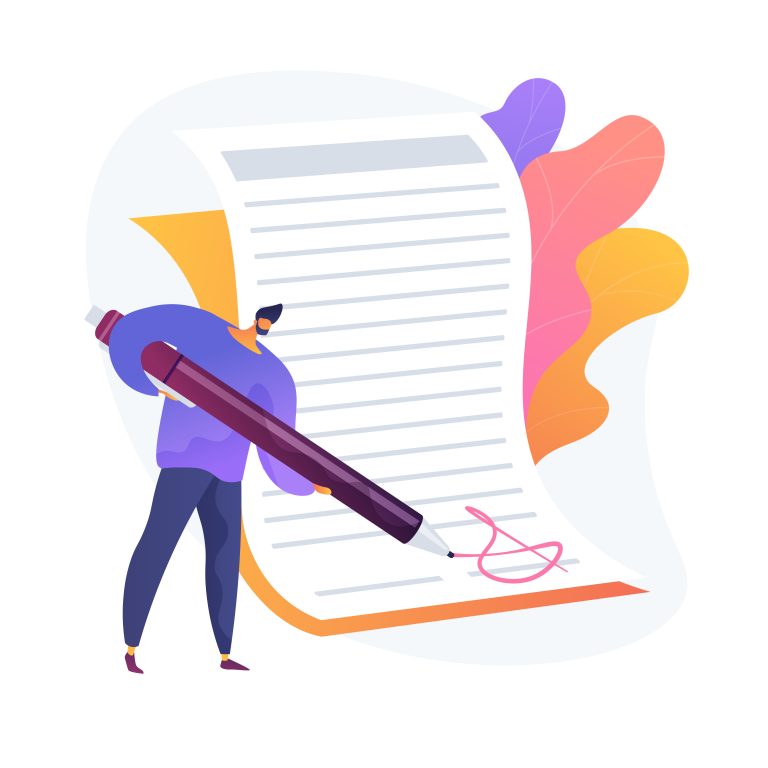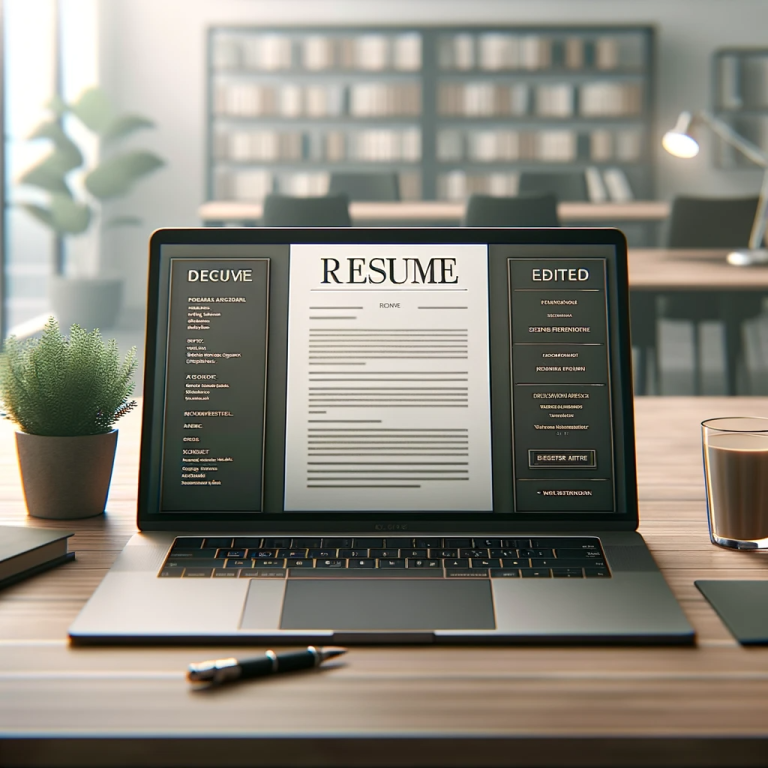[With Examples] Career Transition Resume for 2024
Introduction to Career Transition Resume in 2024
The world of work is rapidly evolving, and with it, the concept of a career. Gone are the days of lifelong employment in a single field. In 2024, more professionals are embracing the idea of career transition, seeking new challenges and opportunities in different industries. This shift necessitates a unique approach to Career Transition Resume, one that highlights transferable skills and a commitment to continuous learning.

Understanding the Career Transition Resume
A career transition resume differs significantly from a traditional one. It’s tailored to showcase how your previous experiences and skills are relevant to a new field. This type of resume focuses on transferable skills, adaptability, and a clear demonstration of how past experiences align with future career goals.
Preparation for Writing a Career Transition Resume
Before diving into resume writing, it’s crucial to conduct a thorough self-assessment. Identify your core competencies, transferable skills, and career aspirations. This introspection sets the foundation for a resume that resonates with your new career path.
Key Components of a Career Transition Resume
Your career transition resume should begin with a compelling personal branding statement, immediately followed by a summary of qualifications. These sections should clearly articulate your value proposition and how your unique blend of skills applies to your new industry.
Showcasing Transferable Skills in Career Transition Resume
The cornerstone of a career transition resume is the effective showcase of transferable skills. These are abilities and competencies relevant across various jobs and industries. Highlighting these skills demonstrates your potential value to prospective employers.
Education and Professional Development in Career Transition Resume
Your academic background and ongoing professional development play a vital role in your career transition. Highlight relevant degrees, certifications, and courses that have prepared you for your new industry.
Professional Experience in a New Light
Reframe your past professional experiences to align with your new career path. Focus on versatile skills and achievements that demonstrate your capability to adapt and excel in different roles.
The Role of Networking in Career Transition
Networking is a powerful tool in career transition. Engage with professionals in your desired field, attend industry events, and leverage platforms like LinkedIn to build connections that can open doors to new opportunities.

Incorporating Achievements and Awards
Select and quantify achievements and awards that are relevant to your new career path. This adds credibility and demonstrates your capability to deliver results, regardless of the industry.
Customizing Your Resume for Different Industries
Research and adapt your resume for different industries. Use industry-specific language and tailor your experiences to meet the unique needs of each sector you’re targeting.
The Importance of Cover Letters in Career Transition
A well-crafted cover letter can make a significant difference. Use it to weave a narrative that connects your past experiences with your future aspirations, demonstrating a clear and logical transition path.
Utilizing Online Tools and Resources
Leverage online tools and resources such as resume builders and templates. These can provide guidance and inspiration for formatting and content, ensuring your resume is professional and polished.
Overcoming Common Challenges in Career Transition
Address common challenges such as employment gaps or changing industry perceptions. Be transparent and use your resume and cover letter to provide context and focus on your strengths and potential.
Best Practices for Resume Formatting and Design
Ensure your resume is clear, professional, and ATS-friendly. Avoid overly complicated designs and focus on readability and clarity.

Examples of Effective Career Transition Resumes
Example 1: From Marketing to Digital Project Management
- Personal Branding Statement: “Dynamic marketing professional with 5 years of experience in campaign management, now transitioning to digital project management. Proven track record in leading successful marketing campaigns, with a passion for digital innovation and team collaboration.”
- Summary of Qualifications:
- Developed and managed multiple high-impact marketing campaigns, boosting brand visibility and engagement.
- Strong project management skills, overseeing cross-functional teams and meeting tight deadlines.
- Proficient in digital tools and analytics, with a keen ability to translate data insights into actionable strategies.
- Professional Experience:
- Marketing Manager, ABC Corp (2018-2023): Led a team of 8 in developing and executing comprehensive marketing strategies. Utilized digital tools to analyze campaign performance, optimizing strategies in real-time.
- Education and Professional Development:
- Bachelor’s in Marketing, XYZ University
- Certified Digital Project Manager, Online Course, Digital Project Management Institute
Example 2: From Teaching to Corporate Training
- Personal Branding Statement: “Experienced educator with a decade of teaching and curriculum development expertise, seeking to leverage extensive communication and presentation skills in a corporate training environment.”
- Summary of Qualifications:
- Expertise in creating engaging, informative, and interactive educational content.
- Skilled in public speaking, presenting complex information in an accessible manner.
- Adept at assessing training needs and tailoring content to diverse learning styles.
- Professional Experience:
- Senior Teacher, DEF High School (2014-2024): Developed and implemented innovative teaching strategies to improve student engagement and learning outcomes. Conducted teacher training workshops on effective teaching methodologies.
- Education and Professional Development:
- Master’s in Education, ABC University
- Corporate Trainer Certification, National Training Association
Example 3: From Finance to Tech Industry
- Personal Branding Statement: “Finance professional with 8 years in investment banking, transitioning to the tech industry with a focus on fintech innovations. Excels in data analysis, financial modeling, and strategic decision-making.”
- Summary of Qualifications:
- In-depth experience in financial analysis and modeling, with a keen interest in tech-driven financial solutions.
- Strong analytical skills, with a track record of utilizing data to drive business decisions and innovations.
- Proficient in programming languages like Python, enhancing tech-related financial strategies.
- Professional Experience:
- Investment Analyst, GHI Bank (2016-2024): Played a key role in financial analysis and investment decision-making processes. Spearheaded a project integrating financial software with emerging tech solutions.
- Education and Professional Development:
- Bachelor’s in Finance, XYZ University
- Python for Finance, Online Course, TechSkills Academy
Interview Tips for Career Changers
Prepare for interviews by anticipating behavioral questions. Demonstrate your adaptability, eagerness to learn, and how your past experiences make you a valuable asset in a new field.
FAQs on Career Transition Resumes
How can I make my previous experience seem relevant in a new industry?
To make your previous experience relevant, focus on transferable skills and achievements that align with the new industry. For example, leadership, project management, and problem-solving are valuable in many fields. Tailor the description of your past roles to highlight how these skills were used and how they can be applied in the new industry.
What if I don’t have any direct experience in the field I’m transitioning to?
Lack of direct experience can be countered by emphasizing transferable skills, continuous learning, and adaptability. Showcase any relevant volunteer work, internships, or courses that demonstrate your interest and commitment to the new field. Also, highlight your ability to learn quickly and adapt to new environments.
How do I address employment gaps due to my career transition?
Be honest about employment gaps. You can explain these gaps in your cover letter or interview by focusing on how you used the time for professional development, learning new skills relevant to your desired field, or personal growth activities that have prepared you for a new chapter in your career.
Can I change industries without going back to school?
Yes, it’s possible to change industries without formal education in the new field. Focus on self-learning, online courses, and certifications that are relevant to the new industry. Also, leverage your professional network to gain insights and opportunities in the field you’re interested in.
How important is networking in changing careers?
Networking is extremely important in career transitions. It helps you gain industry insights, find hidden job opportunities, and get referrals. Attend industry events, join professional groups, and engage in online communities related to your new field. Building relationships with professionals in your desired industry can significantly aid your transition.
What are the biggest mistakes to avoid on a career transition resume?
Avoid being too vague about your skills and experiences. Be specific about how they relate to the new field. Also, don’t clutter your resume with irrelevant information. Keep it focused on experiences and skills that demonstrate your suitability for the new role. Lastly, not tailoring your resume for each job application is a common mistake. Customize it to align with the job description and requirements of each role you apply for.
Conclusion and Final Thoughts
Embracing the journey of career transition requires courage, adaptability, and persistence. Your resume is a key tool in this journey, serving as a bridge between your past experiences and future aspirations. Stay positive, be persistent, and remember that every skill and experience you’ve gathered along the way contributes to your unique professional story.
🔴Do you have an ATS (Automatic tracking system) Compliant CV?
🔴Do you have a CV which is globally acceptable?
🔴Do you have professional content in your CV?
✅Get your CV designed and developed today !! Professionally .
Visit www.prosumely.com
Get your Resume reviewed for free by industry experts: Click






![How to Write a Cover Letter That Gets an Interview Call [With Templates]](https://prosumely.com/wp-content/uploads/2024/01/DALL·E-2024-01-13-12.20.43-A-creative-and-professional-cover-image-for-a-blog-titled-How-to-write-a-cover-letter-that-gets-an-interview-call-With-Templates.-The-image-should-768x768.png)
